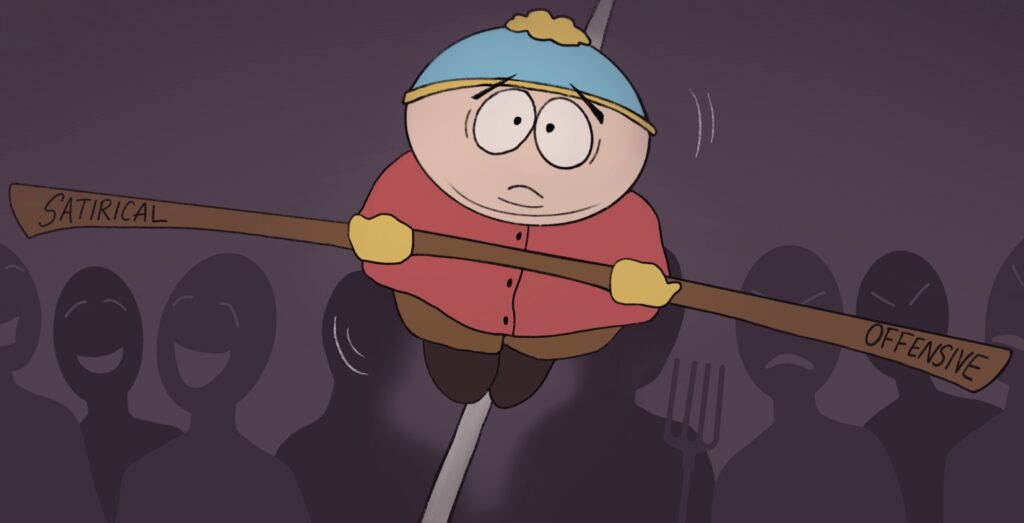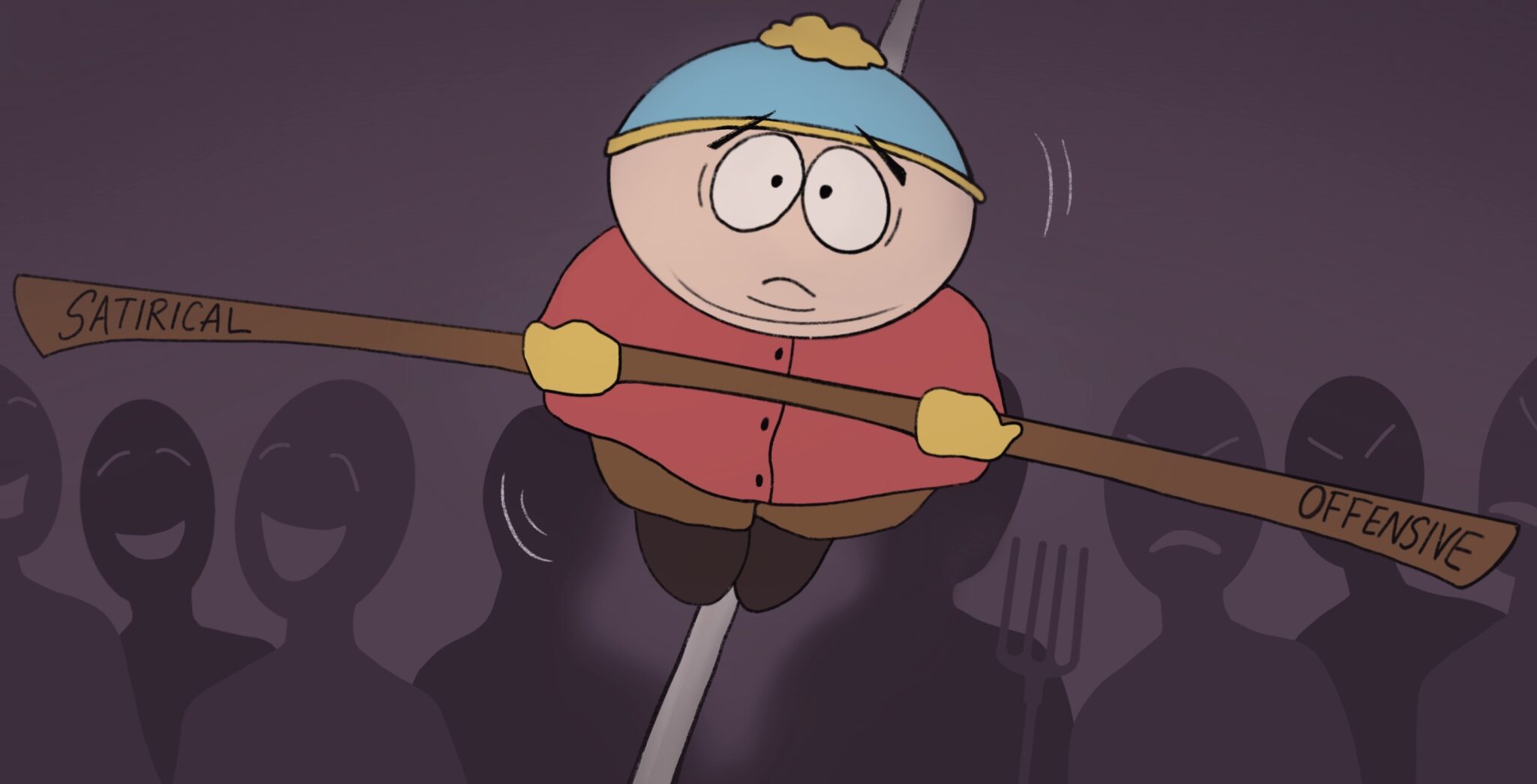

It’s late at night, and the TV is turned on to FOX Network. The news anchors say their final goodnights and fade out with a shot of the night sky. A different form of news appears: a cartoon. Adult cartoons such as “Family Guy,” “South Park” and “The Simpsons” employ a form of humor known as satire, meant to highlight certain aspects of society through humor. The presence of satire poses the questions: are these jokes more funny than offensive? Does satire help with pointing out societal issues, or does it do more harm than good?
“A lot of the jokes [in cartoons] are race-related,” said sophomore Darren Benavente. “I might not relate to those but I can understand it well. For example, the Asian stereotype that [Asians are] all really smart, I can definitely understand it well enough, and I find that funny.”
Due to the longevity of some of these cartoons, these jokes are also well-versed in society, being used more as a force of good.
“[With] a lot of jokes that [adult cartoons] make, you can tell that they’re joking,” said junior Phoebe Taylor. “But sometimes it really makes you think about why this is a bad thing. It makes a lot of people dig deeper into social issues and research more.”
These jokes can help criticize sensitive aspects of society, drawing attention to these issues while also bringing a memorable laugh.
“Very difficult topics are easiest left untalked about, but humor or comedy can get us to think and talk about them when we normally wouldn’t,” said Advanced Placement United States History teacher Will Colglazier. “I think there’s real value in holding a mirror up to ourselves, getting the conversation started. You would think [comedy and serious topics] don’t go hand in hand but it’s a great way to break the ice.”
Colglazier believes satirical cartoons can be a tool to teach his teenage son about the evolving world.
“There are some episodes in ‘The Simpsons’ where they were essentially making fun of [Waylon Smithers] for being gay,” Colglazier said. “I paused and I talked to my son about how it’s accepted and encouraged for people to be public about their sexual orientation, and it’s a learning opportunity. It’s a great way to slip in some wisdom.”
Some believe offensive humor, when executed correctly, can be valuable.
Offensive comedy can be made in a very tasteful way that can be appealing to others
Genine Parico
“Usually when people make jokes, there is supposed to be a punchline. You can’t just say something racist and think everyone’s gonna laugh at it.”
When cartoons cross the line, they can offend or disrespect people.
“There’s a saying that it works when you’re punching up, it doesn’t work when you’re punching down,” said senior Eric Gonzalez-Jimenez. “When it punches up [at the system or authorities], that’s what actually works since the whole point [of satire] is making fun of the power structures in our world. But when it’s punching down [at marginalized groups], it’s not funny, but it’s just about ridiculing things.”
Colglazier believes that being aware of these issues are important.
“You have to be cognizant and talk to people who are at the receiving end of some of those lines or attempted jokes,” Colglazier said. “Is it [a joke] that I shouldn’t be laughing at or listening to even if I don’t know if it’s offensive to the other person? If I can assume that it is [offensive], I need to proactively turn it off.”
Junior Andy Le believes that the stereotypical accents used by certain characters can be offensive.
“The way cartoons depict [foreign accents exaggerates] the way they speak English, and can be [perceived] like they’re disrespecting foreigners just because they weren’t born here,” Le said.
There have been some cartoons that have made efforts to adapt to the changing world by dialing back or preventing the spread of certain jokes. Once in 2010, Family Guy banned an episode titled “Partial Terms of Endearment,” which made insensitive jokes pertaining to abortions. Seen as too controversial by Americans, it was never given clearance to air on TV.
With cartoons and satire, there are arguments for whether it is offensive or comedic. Given the popularity of such forms of television, it is likely satire will continue to be a prevalent medium in the future.




